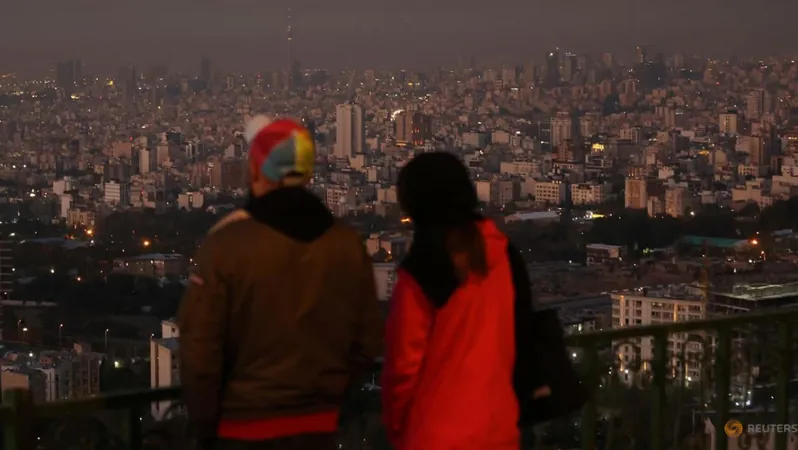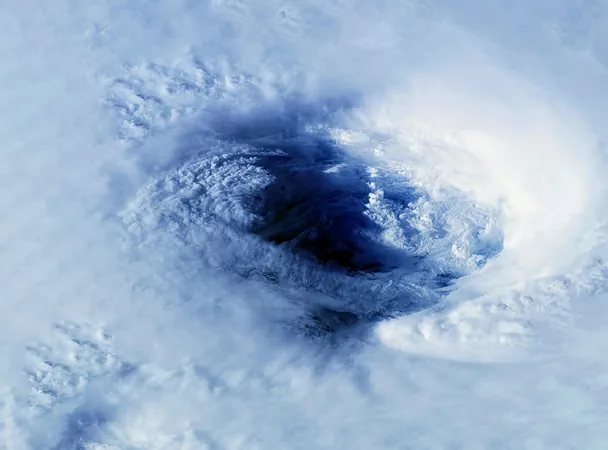
Iran Asserts Right to Self-Defense Amid Rising Tensions with Israel
2024-10-26
Author: Siti
TEHRAN: In a tense escalation of hostilities, Iran reaffirmed its right and duty to defend itself following Israeli airstrikes that resulted in the deaths of at least two Iranian soldiers on Saturday, October 26. The incident has ignited fears of a broader regional conflict in the already volatile Middle East.
Israel's military issued a stark warning to Iran, stating that any retaliation would come at a heavy cost. In response, the United States, Germany, and Britain urged Tehran to refrain from escalating the situation further. The European Union also called on all involved parties to exercise maximum restraint to prevent what it labeled an "uncontrollable escalation" of violence, emphasizing that ongoing attacks and retaliations threaten to spiral into a more extensive conflict.
Iran, maintaining its stance, claimed not only the right but the obligation to protect its sovereignty. Meanwhile, its Lebanese ally, Hezbollah, reported launching rocket attacks targeting residential areas in northern Israel, with Israeli military responses confirming that 80 projectiles were fired from Lebanon.
Amidst the chaos, explosions and anti-aircraft fire were reported around Tehran, as Israel conducted air operations targeting Iranian missile factories and military installations across various regions in Iran. While Israel claimed its operations had successfully hit their intended targets, Tehran characterized the airstrikes as causing "limited damage," albeit noting the tragic loss of its soldiers.
The backdrop to this confrontation includes a heightened state of conflict that began in early October, following Iran's unprecedented missile attack on Israel. With around 200 missiles fired, the attack was only the second known direct assault against the nation. Although most were intercepted, it resulted in civilian casualties, igniting Israel’s vow of retaliation.
The ongoing harsh military engagements are not limited to Iranian-Israeli confrontation. Israel is deeply embroiled in simultaneous conflicts with Hezbollah in Lebanon and Hamas in Gaza, with these disputes causing staggering humanitarian crises and loss of life on both sides. The United Nations has voiced alarms over the "darkest moment" of the Gaza conflict, where nearly 43,000 have reportedly died due to the relentless bombardments.
Simultaneously, Iranian-allied factions in Iraq, Yemen, and Syria are taking part in the complex geopolitical chess game, carrying out drone attacks and other military actions against Israeli positions. Amid this turmoil, Israeli jets have also targeted military positions in Syria, showcasing the extensive scope of the conflict.
Hezbollah has intensified its military actions against Israel, claiming responsibility for multiple rocket launches and drone missions aimed at Israeli military installations, including airbases and soldier positions. The repercussions of these exchanges have injured and killed civilians on both sides, with reports of fatalities among Hezbollah affiliates due to Israeli strikes.
Amidst these tumultuous developments, the United States reiterated its backing of Israel, framing its actions as necessary self-defense. National Security Council spokesperson Sean Savett called for an end to Iranian attacks to prevent further chaos.
The ongoing hostilities are compounded by deeply entrenched animosities and historical disputes in the region, hinting at a potential for dangerous escalation if diplomatic efforts are not undertaken. As the situation unfolds, regional and global leaders are left grappling with the consequences of an increasingly hostile environment that could reshape dynamics in the Middle East for years to come.



 Brasil (PT)
Brasil (PT)
 Canada (EN)
Canada (EN)
 Chile (ES)
Chile (ES)
 España (ES)
España (ES)
 France (FR)
France (FR)
 Hong Kong (EN)
Hong Kong (EN)
 Italia (IT)
Italia (IT)
 日本 (JA)
日本 (JA)
 Magyarország (HU)
Magyarország (HU)
 Norge (NO)
Norge (NO)
 Polska (PL)
Polska (PL)
 Schweiz (DE)
Schweiz (DE)
 Singapore (EN)
Singapore (EN)
 Sverige (SV)
Sverige (SV)
 Suomi (FI)
Suomi (FI)
 Türkiye (TR)
Türkiye (TR)